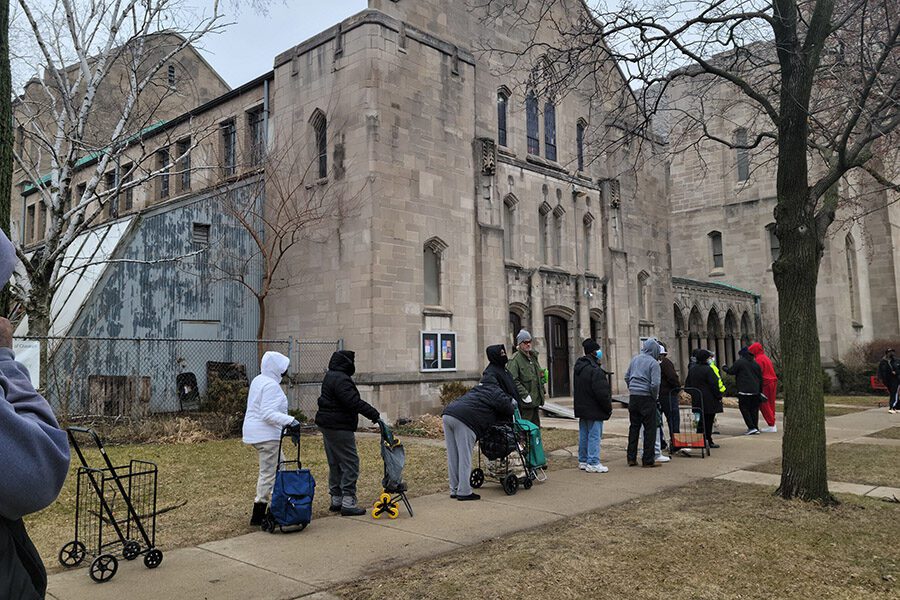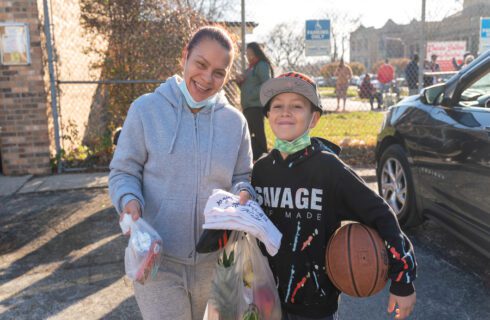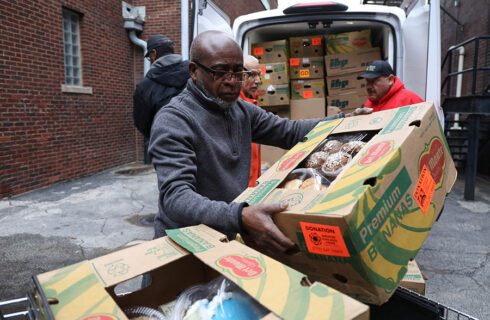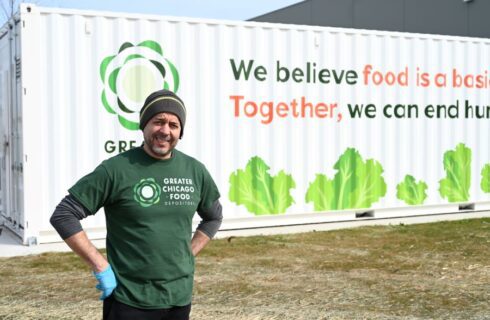Tim Wennerberg has survived a lot, including a car accident and a heart attack. What he doesn’t know is how to survive on the $60 in SNAP (Supplemental Nutrition Assistance Program) benefits he now receives each month.
“Who can live on that?” he asked, standing at the food pantry at First Presbyterian Kimbark in the Woodlawn neighborhood. “That’s cutting it close.”
Wennerberg, 59, used to receive $260 a month in SNAP benefits, thanks to an emergency supplement introduced in April 2020 to help people buy food during the pandemic. A federal policy change eliminated the emergency supplements two months early at the end of February.
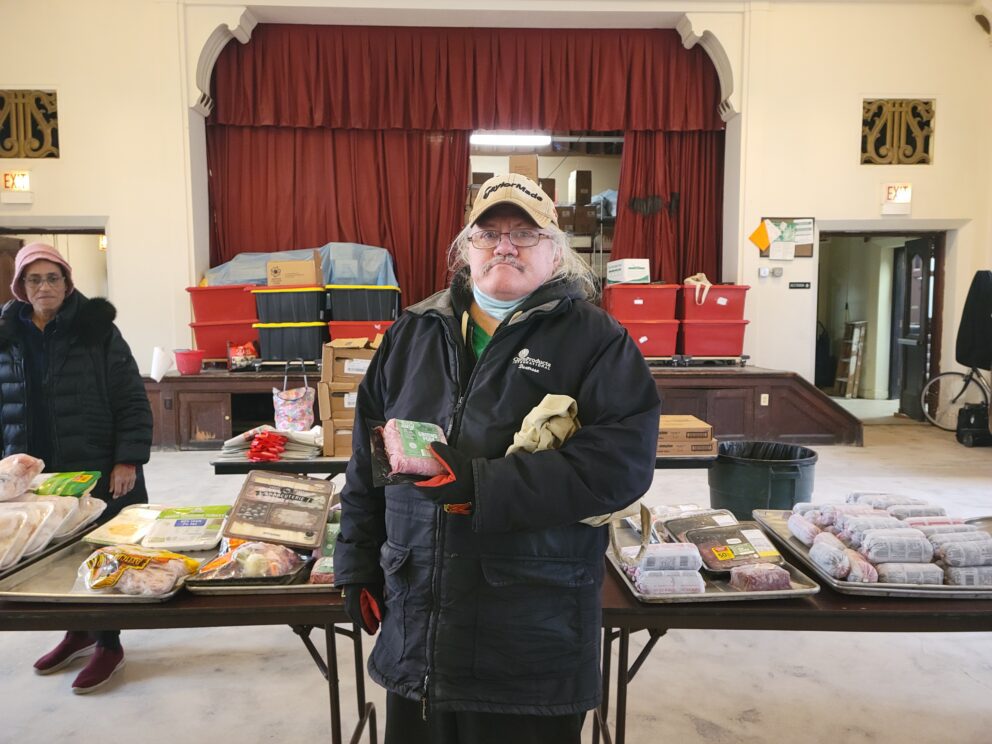
Tim Wennerberg at the First Presbyterian Kimbark food pantry
The change left Wennerberg, and countless others like him already living on the razor’s edge, scrambling to find alternative food sources at a time when food prices are still elevated.
Wennerberg is grateful a neighbor told him about the food pantry at First Presbyterian Kimbark six years ago. He’s been using the pantry to supplement what he can purchase with SNAP benefits, but will now rely almost solely on the food pantry.
Less aid, more expense
Gail Robinson, who manages First Presbyterian Kimbark’s Free Food Market, worries for Wennerberg and other SNAP participants like him. Roughly 60 percent of the 130 families the pantry serves every week are SNAP participants, and all have experienced the reduction in monthly assistance.
The market has already experienced a spike in attendance, and Robinson is preparing for that to last for some time. “We will increase our volunteer base and we’re open to increasing our operational hours,” she said.
Laura Linton, a single mom of two, echoed Wennerberg’s frustration about the SNAP changes.
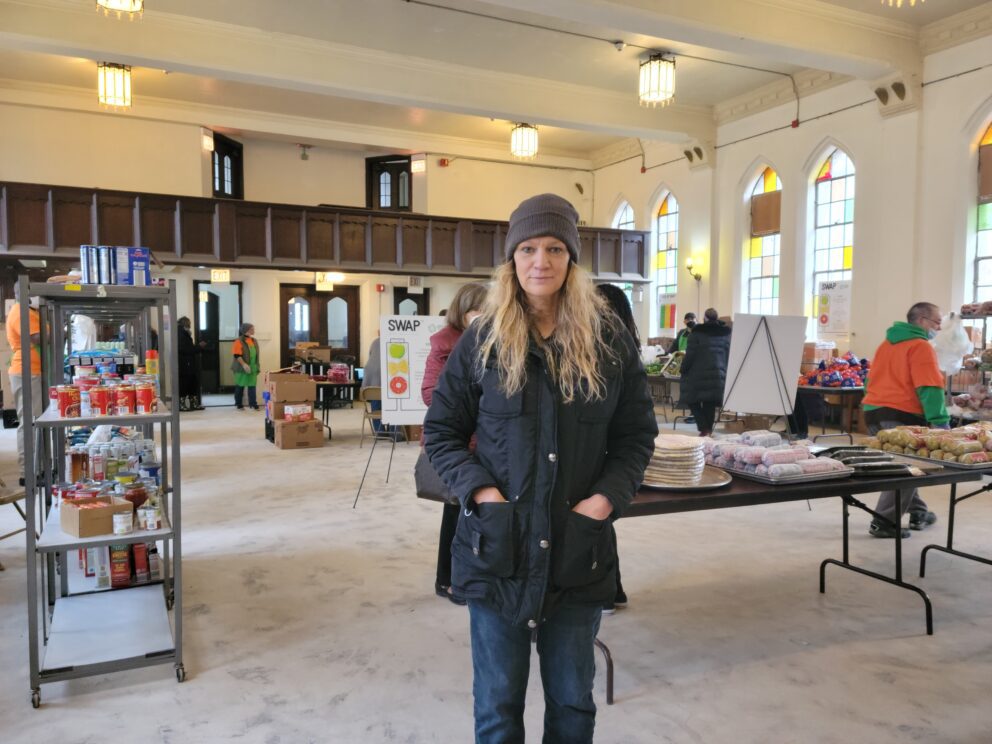
Laura Linton
“They’re cutting emergency aid while eggs are still five dollars. I don’t get it,” she said.
Linton goes to the First Presbyterian Kimbark market after she drops off her 12-year-old daughter at school. Her 16-year-old son is on the autism spectrum, and his school calls Linton whenever he has an aggressive episode, usually two to three times a week. Whenever the call comes, Linton has to go pick up her son, which makes it difficult for her to maintain a job.
She’s thankful that the free food market helps her put food on the table for her kids, no matter her employment status or the level of her SNAP benefits. “I’m grateful for this place,” she said.
A matter of survival
Like most pantry guests, Wennerberg preferred being able to support himself, which he did for years when he worked as a union laborer and mechanic. But he was hit by a car years ago, and couldn’t work during his years-long recovery. During that time and while he worked to qualify for Social Security disability benefits, he lost his home and spent three years living under a bridge in Chicago Ridge.
When Wennerberg qualified for a housing program, he was placed in an apartment in Woodlawn – just a block from First Presbyterian Kimbark. You can find him there every Thursday for their food pantry.
“I come rain, snow, or sleet. Usually by 8 a.m. to get a good number,” he said, referring to the pantry’s system of organizing guests. “If you come late, some stuff is gone.” That matters even more now with the change in SNAP benefits. “This pantry is such a blessing to me,” he said.
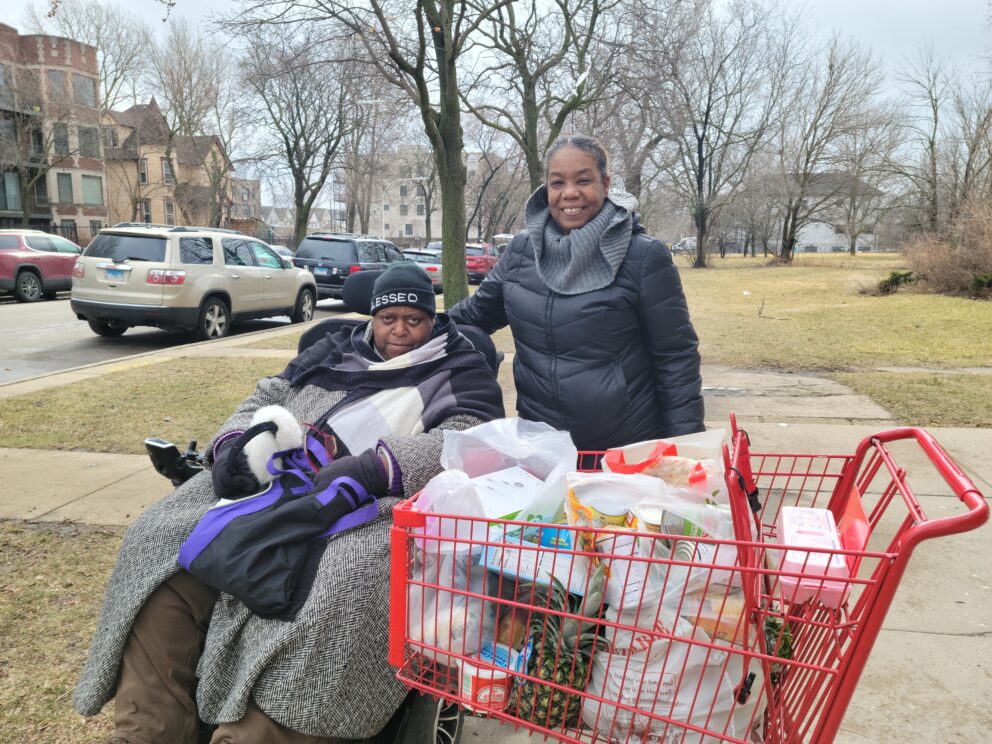
Carolyn Rhodes (left) with volunteer Genora Stone
First Presbyterian Kimbark pantry guest Carolyn Rhodes, a former preschool teacher, spoke for many when she said, “No one wants to come to a pantry, but you’ve gotta do what you’ve gotta do.”
Rhodes, who lives in a building for those with physical challenges, said her grocery budget has nearly doubled in recent months. She loves omelets, but rising food prices and decreasing benefits means she’s had to stop eating them.
In the face of these challenges, the consistency and kindness of the pantry staff are especially meaningful. “They really show us love here,” she said. “This place means survival.”
When you support the Food Depository, you support SNAP participants struggling to survive with less assistance. Your gift helps ensure our partner pantries are well stocked and ready to serve all who come to them for food.
Share This Post

